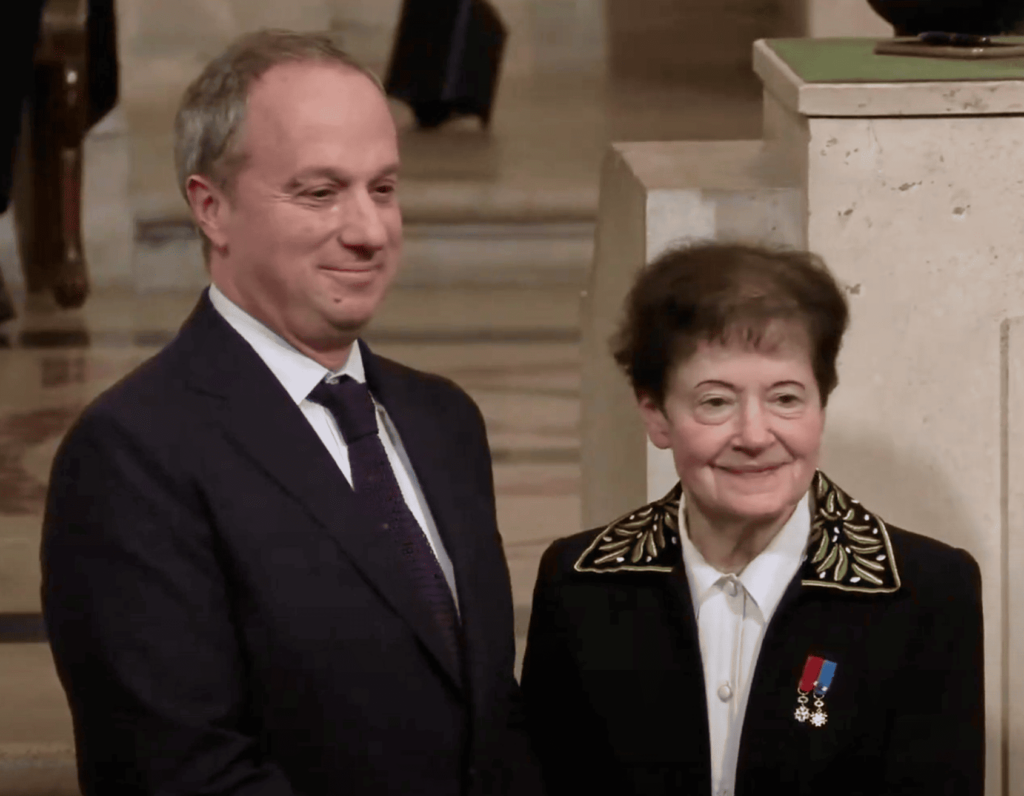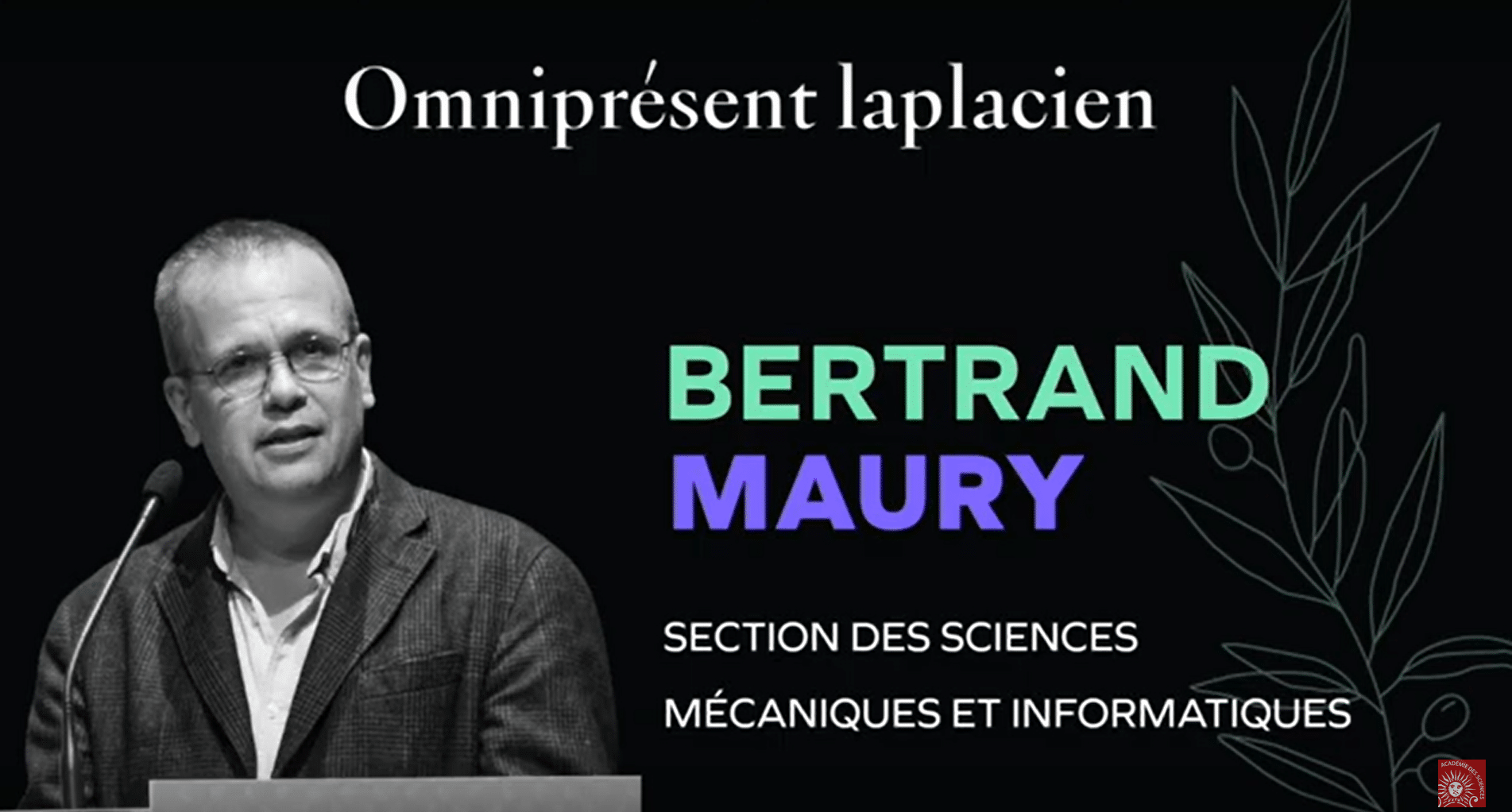The Michel Monpetit – Inria Prize, awarded annually by the French Academy of Sciences, honors research that combines scientific rigor and technological innovation. Nicolas Petit, a teacher-researcher at the Centre Automatique Systèmes (CAS) at Mines Paris – PSL, joins the circle of prize-winners thanks to his remarkable contributions to control theory applied to mechanical systems.
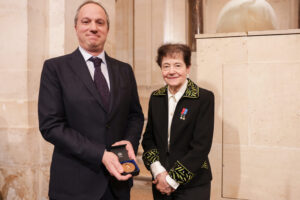
His research focuses on innovative filtering algorithms capable of estimating kinematic quantities such as orientations, positions or speeds of rigid or flexible systems. This work has concrete applications in fields as varied as robotics, defense and urban mobility. They bear witness to the company’s determination to connect fundamental science with industrial needs, an approach that has characterized the identity of CAS since its creation in 1968.
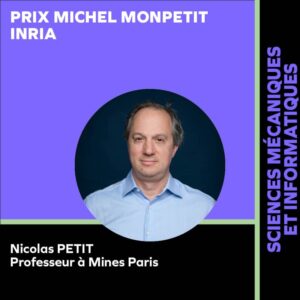
In this interview, Nicolas Petit shares his background and vision for the discipline of Automation.
Nicolas, can you tell us about your background and the milestones in your career?
I graduated from École Polytechnique, class of ’92. That’s when I met my future thesis supervisor (P. Rouchon). I was already building robots and interested in embedded algorithms, having founded the “Binet Robot” with some friends. After a thesis devoted to the study of nonlinear control of polymerization reactors, refining processes and certain classes of wave equations, financed by Total, I went to the California Institute of Technology for a postdoc in the Control and Dynamical Systems department with R. M. Murray. I then returned to the École des Mines de Paris, first as a junior lecturer, then as a professor and then as head of the Centre Automatique et Systèmes (CAS). I still work there today. I was a scientific advisor to Total for 20 years, and today I’m a member of the Scientific Advisory Board of IFP Énergies Nouvelles. I’ve also co-founded a company, and have been an advisor to numerous French start-ups since their inception.
What is your scientific field?
I’m a specialist in control theory, a discipline of applied mathematics. This theory, also known as “Automatics”, is present in all fields of engineering. It has a very special place at Mines Paris – PSL.
Why?
First of all, Automatics is the direct heir to the theory of dynamical systems, one of whose illustrious founders was Henri Poincaré (a former student of the École), with his famous work on celestial mechanics from 1892. Secondly, the Centre Automatique et Systèmes (CAS), which I headed for 14 years, is an elite laboratory at the École. It was founded in 1968 by visionaries, with the support of R. E. Kalman, then at Stanford University, one of the most eminent automaticians. Constantly renewed (in the non-linear field, Lyapunov-style methods, etc.), the themes of the Centre Automatique et Systèmes (CAS) have often set new standards, and have enjoyed a strong international reputation.
Can you tell us more about your work?
Automation is a science with a universal vocation. It has a role to play in all areas where we measure the behavior of a dynamic system with the aim of modifying its behavior (stabilizing it, setting it in motion…). That’s why I spend a lot of time in close contact with industrial and application needs. I go to factories, production centers, startups, hospitals and research laboratories. I first became passionate about petrochemicals, refining, internal combustion engines, automotive pollution control systems, drones, space launchers, the magnetization of matter, fluidic and microfluidic systems and many other fields. The work rewarded by this prize relates more specifically to my research into the estimation of kinematic quantities (orientations, positions, velocities, forces) for mechanical systems such as exoskeletons, electrically-assisted vehicles and aeroballistic devices, among others.
What are the sources of inspiration or needs that guide your choice of research topics?
Automatics is a fairly fundamental science, but it’s also very applied. I’m convinced, as are others (to quote S. Candel of the Académie des Sciences), that dialogue with applications is very fruitful and that, following Pasteur’s example, “Science grows through contact with applications”. So I’m always keen to take an interest in the questions of engineers, entrepreneurs and scientists, and I’m pleased when, in the end, the work I carry out ends up being integrated into systems with an operational reality. The door of the Centre Automatique et Systèmes (CAS) is always open to questions and new ideas.
The ceremony
The ceremony took place on Tuesday November 26, 2024, under the dome of the Institut de France, presided over by Alain Fischer, President of the Academy.
I’m very proud, happy and honoured to have received the Montpetit Prize. I have a sincere and friendly thought for all those who have shown me their encouragement and support, and I am grateful for the confidence they have had in me.
Nicolas Petit
You can relive the event by watching the online broadcast (Nicolas Petit receiving his medal at 1:26:48).
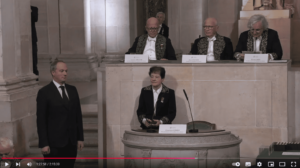
With this recognition, Nicolas Petit has added his career to the tradition of excellence at Mines Paris – PSL, while illustrating the impact of Automatic Control on concrete systems. His work testifies to a commitment to pushing back the frontiers of applied research, in constant dialogue with industry and academia.
